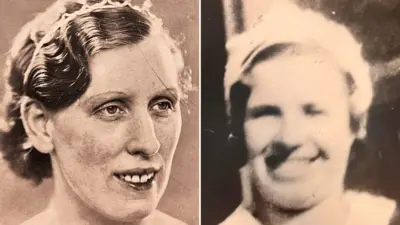We've updated our Privacy and Cookies Policy
We've made some important changes to our Privacy and Cookies Policy and we want you to know what this means for you and your data.
Northern Ireland needle exchange scheme use increases
Image source, Getty Images
There has been an increase in the number of people using the needle and syringe exchange scheme across Northern Ireland, new figures show.
The project, which is funded by the Public Health Agency (PHA), is accessible at 21 different locations.
It provides needles and syringes to people who are injecting intravenous drugs, such as heroin or steroids.
, a total of 30,065 visits were made to clinics - an increase of 3% on the previous year.
The PHA says the increase may be due to the opening of two additional clinics.
The scheme has been in operation since 2005.
The service is available to anyone who injects substances such as steroids, stimulants and opioids.
Of the total visits in 2017/18, the greatest number (19,319) related to the injection of opioids, such as heroin.
The Belfast Health and Social Care Trust area received the most visits (14,523), while the Southern Trust reported the lowest number (1,451) .
'Important for entire community'
The PHA's drug and alcohol lead, Michael Owen, said the confidential scheme was a "vital" service.
"People who inject substances are often vulnerable, may be in poor health, dealing with complex social issues and without local access to sterile equipment and advice," he said.
"Needle exchanges are particularly valuable for engaging these people, because it may be the only service they are willing to use."
Image source, Getty Images
Mr Owen added that those who inject substances will often "find a way to inject whether they can get clean needles or not".
"There is a serious risk to population health if these individuals share or reuse injecting equipment, which can lead to serious illness and infection.
"Making it harder for people to get clean needles would mean they are far more likely to share needles."
He said this could "hugely increase the risk of blood-borne viruses such as Hepatitis B and C or HIV" among those who inject.
"This in turn would increase the risk to the wider population," he added.
"So needle exchanges have an important role to play in helping to protect not only drug users, but also the community more generally."
Top Stories
More to explore
Most read
Content is not available








